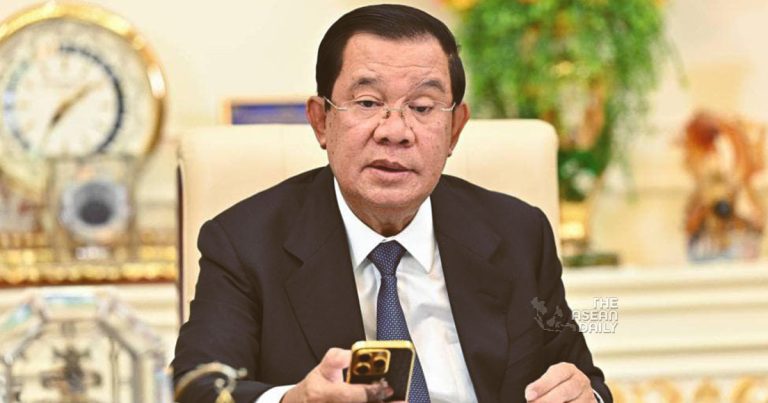25-2-2024 (PHNOM PENH) Cambodian officials participated in a Senate election on Sunday, laying the groundwork for the official return of former leader Hun Sen to politics. After almost four decades of stringent rule, Hun Sen handed over power to his eldest son, Hun Manet, in last August’s national polls, which took place without any significant opposition.
Although Hun Sen resigned as prime minister, he made it clear that he intended to retain influence in the political landscape. The 71-year-old, also the lawmaker and chief of the ruling party, cast his vote near his residence in Takhmao city for a Senate seat, the country’s upper house. His goal is to become the president of the Senate, allowing him to act as the head of state when the king is abroad.
At the polling station, councillor Chhim Vanarith expressed support for this move, stating that if Hun Sen leads the Senate, the country will experience further development and peace.
Four political parties, including Hun Sen’s ruling Cambodian People’s Party (CPP), the royalist Funcinpec Party, and two small opposition parties, are participating in the election. Out of the 62-seat Senate, 58 seats will be decided by 125 MPs and over 11,000 local administrators. King Norodom Sihamoni will appoint two senators, while the National Assembly will appoint two others. Given that most eligible voters are members of the CPP, a clean sweep by Hun Sen is highly likely.
Sebastian Strangio, author of “Hun Sen’s Cambodia,” views this election as a further consolidation of power by the Hun family. He suggests that ensuring the Senate’s leadership remains within the family is a strategic move to protect Hun Sen’s son and prevent any potential challenges to the family’s control.
The official results from the National Electoral Committee are expected to be published in the coming weeks. In the capital city of Phnom Penh, voters expressed a desire to see Hun Sen back in a position of authority, citing his experience as a key factor for the country’s prosperity.
This election follows the approval of Hun Sen’s youngest son, Hun Many, as a deputy prime minister, solidifying the government’s inclusion of several of Hun Sen’s relatives and allies’ children in prominent roles. Hun Sen’s leadership since 1985 has been characterized by efforts to modernize the country, but critics point to environmental degradation, pervasive corruption, and the elimination of political rivals as significant challenges during his rule.




